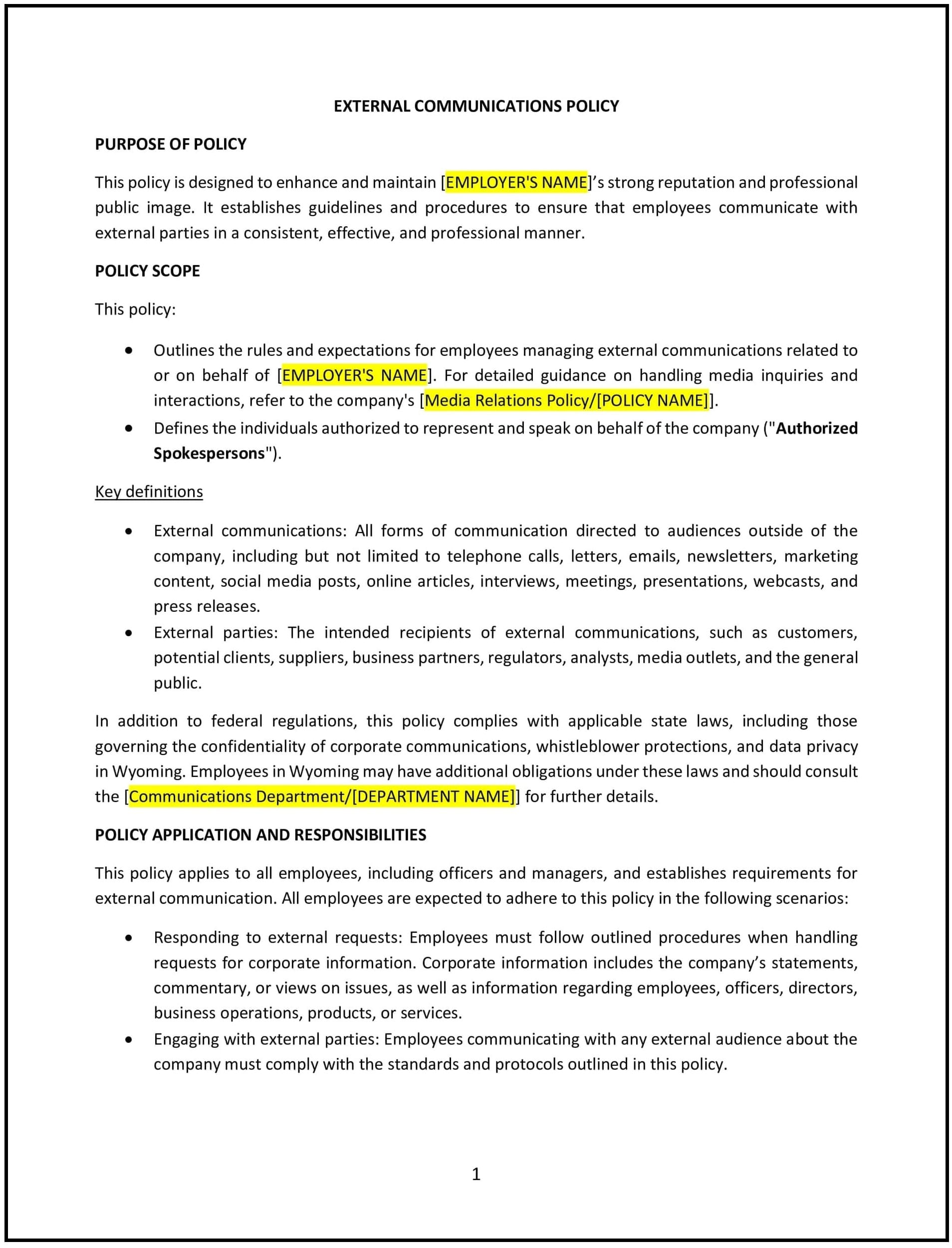External communications policy (Wyoming): Free template
Got contracts to review? While you're here for policies, let Cobrief make contract review effortless—start your free review now.

Customize this template for free
External communications policy (Wyoming)
In Wyoming, an external communications policy helps businesses establish clear guidelines for managing how employees and representatives communicate with the public, media, and other external stakeholders. This policy ensures consistency, professionalism, and alignment with the organization’s values while reducing the risk of misinformation or reputational harm.
This policy outlines the principles, procedures, and responsibilities for handling external communications, fostering trust and transparency with external audiences.
How to use this external communications policy (Wyoming)
- Define key communication principles: Clearly state the organization’s commitment to accurate, professional, and respectful communication with external stakeholders.
- Identify authorized spokespersons: Specify who is authorized to speak on behalf of the company, such as executives, PR representatives, or designated managers.
- Outline communication channels: Provide guidelines on acceptable channels for external communication, such as press releases, social media, email, or official statements.
- Establish approval processes: Include steps for reviewing and approving communications, particularly those involving sensitive or high-profile topics.
- Support compliance: Align the policy with Wyoming laws and industry regulations, to adhere to legal and ethical standards.
Benefits of using an external communications policy (Wyoming)
A structured external communications policy offers several advantages for Wyoming businesses:
- Promotes consistency: Ensures all external communications align with the organization’s values and messaging.
- Protects reputation: Reduces the risk of misinformation or unauthorized statements that could harm the business.
- Supports compliance: Aligns with Wyoming laws and industry-specific regulations, mitigating legal and ethical risks.
- Improves stakeholder trust: Demonstrates a commitment to transparency and professionalism in public interactions.
- Adapts to local needs: Reflects Wyoming’s unique business landscape and community-oriented values.
Tips for using an external communications policy (Wyoming)
- Train employees: Provide training on the importance of consistent and professional external communication, including examples of appropriate and inappropriate interactions.
- Monitor communication channels: Regularly review external communications, such as social media posts or press releases, to ensure alignment with the policy.
- Encourage collaboration: Foster collaboration between teams, such as PR and legal, to handle complex or sensitive topics effectively.
- Update regularly: Revise the policy periodically to reflect changes in laws, communication trends, or organizational priorities.
- Provide clear escalation paths: Include procedures for escalating sensitive issues to higher management or legal counsel before making public statements.